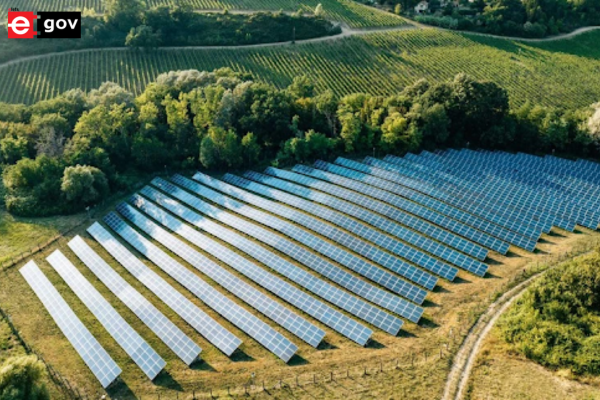
In the global battle against climate change, the urgency for action has never been more apparent. With mounting evidence of climate-related disasters and the imperative for swift and effective measures, nations around the world are called upon to step up their efforts. Recognising this imperative, the United Kingdom (UK) and India have embarked on a collaborative journey to address this existential challenge.
The UK, acknowledging its role as a leader in climate action, has committed to ambitious net-zero targets. Notably, since 1990, the UK has successfully decarbonised its economy, reducing emissions by an impressive 48%. Additionally, the UK has emerged as one of the largest climate donors globally, extending support to mitigate the impacts of climate change on vulnerable communities.

However, the task of combating climate change necessitates a collective effort. India, with its burgeoning energy demands and vast potential for growth, stands at a critical juncture. While historically reliant on coal and oil, India is witnessing a significant transition towards renewable energy sources. Renewable energy capacity in India is poised to double by 2026, presenting a monumental economic opportunity.

The transition to clean energy not only aligns with environmental imperatives but also unlocks substantial economic potential. Low-carbon technologies, including renewable energy, batteries, and green hydrogen, could catalyze an economic transformation estimated to be worth up to $80 billion in India by 2030.

In our collective fight to address climate change, the UK and India have forged a strategic partnership focused on energy and climate. This collaboration manifests in various forms, including knowledge exchange, scientific research, financial support, and international initiatives.

Through programs like “Aspire,” aimed at accelerating smart power and renewable energy adoption in India, the UK is providing expertise and support to facilitate India’s sustainable energy transition. Additionally, significant investments in climate-related research and innovation underscore the UK’s commitment to fostering technological advancements in India.
Financial support is also pivotal in enabling India to deploy green infrastructure at scale. With investments totaling 330 million pounds in green and resilient infrastructure, the UK demonstrates its commitment to facilitating India’s transition towards a sustainable future.
Moreover, international collaboration on initiatives such as the Coalition for Disaster Resilient Infrastructure underscores the shared commitment to addressing climate change on a global scale. The strategic roadmap between the UK and India encompasses various areas, including electric vehicles, forestry, net-zero initiatives, and green hydrogen. As both nations continue to collaborate and innovate, they remain poised to pioneer new models of economic development while providing a blueprint for other developing economies.
In conclusion, energy lies at the heart of the climate challenge, and collaboration between nations is paramount in finding solutions. As the UK and India intensify their joint efforts, we reaffirm our commitment to combating climate change and securing a sustainable future for generations to come.
Views expressed by – Caroline Rowett, British Deputy High Commissioner, Chandigarh, at the 6th Elets National Energy Summit in Chandigarh
Be a part of Elets Collaborative Initiatives. Join Us for Upcoming Events and explore business opportunities. Like us on Facebook , connect with us on LinkedIn and follow us on Twitter, Instagram.
"Exciting news! Elets technomedia is now on WhatsApp Channels Subscribe today by clicking the link and stay updated with the latest insights!" Click here!













